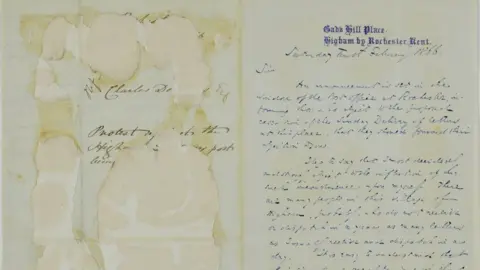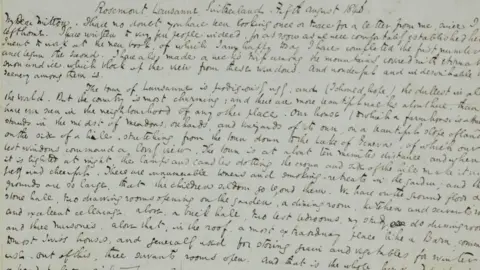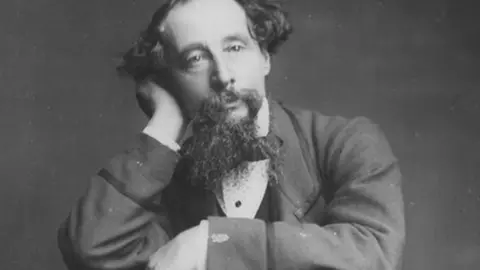Unseen Charles Dickens letters show author's awareness of fame
 PA Media
PA MediaA batch of unseen and unpublished letters from Charles Dickens, some showing his awareness of his own fame, is being displayed for the first time.
The 11 letters reveal the author's reading habits, writing projects and his frustration at the loss of a Sunday postal service.
In one he writes he would be "so hampered" he threatens moving away.
The letters, among a collection worth £1.8m, have been acquired by the Charles Dickens Museum.
In one, dated 10 February 1866, discussing the removal of a Sunday postal service, Dickens says: "I beg to say that I most decidedly and strongly object to the infliction of any such inconvenience upon myself."
He refers to the number of letters he receives and sends, saying he would be "so hampered by the proposed restriction that I think it would force me to sell my property here" and leave the Kent village of Higham.
"I am on the best terms with my neighbours, poor and rich, and I believe they would be sorry to lose me", writes the author of classics including Oliver Twist and A Christmas Carol.
 PA Media
PA MediaMore than 300 items, including personal objects, portraits, sketches, playbills and books, were acquired from a US collector in 2020.
Emily Dunbar, curator at the Charles Dickens Museum, says the letter complaining about the postal service is a "great example of Dickens showing self-importance, his awareness of his great fame and position in society coming to the fore".
She said "one of the best things" about the letters is that it shows the author writing in his 30s, 40s and 50s and "the variety of topics that were occupying his mind".
The exhibit will go on display at the London museum and online from Wednesday.
Dickens is one of the most important writers of the 19th Century, known for classics including Oliver Twist and A Christmas Carol. His influence goes far beyond just literature and many of his phrases, characters and ideas have ingrained themselves in modern culture.
 Getty Images
Getty Images